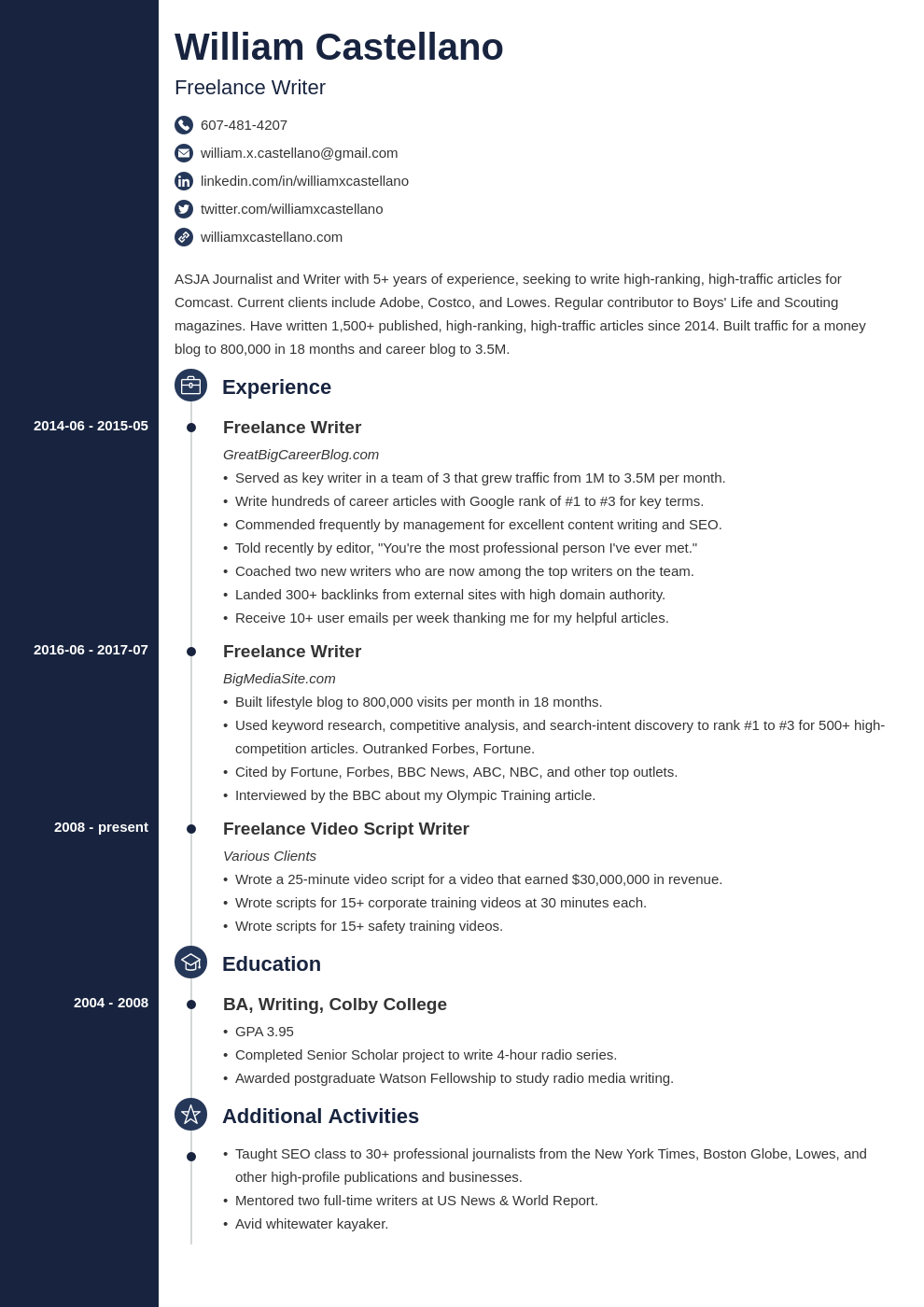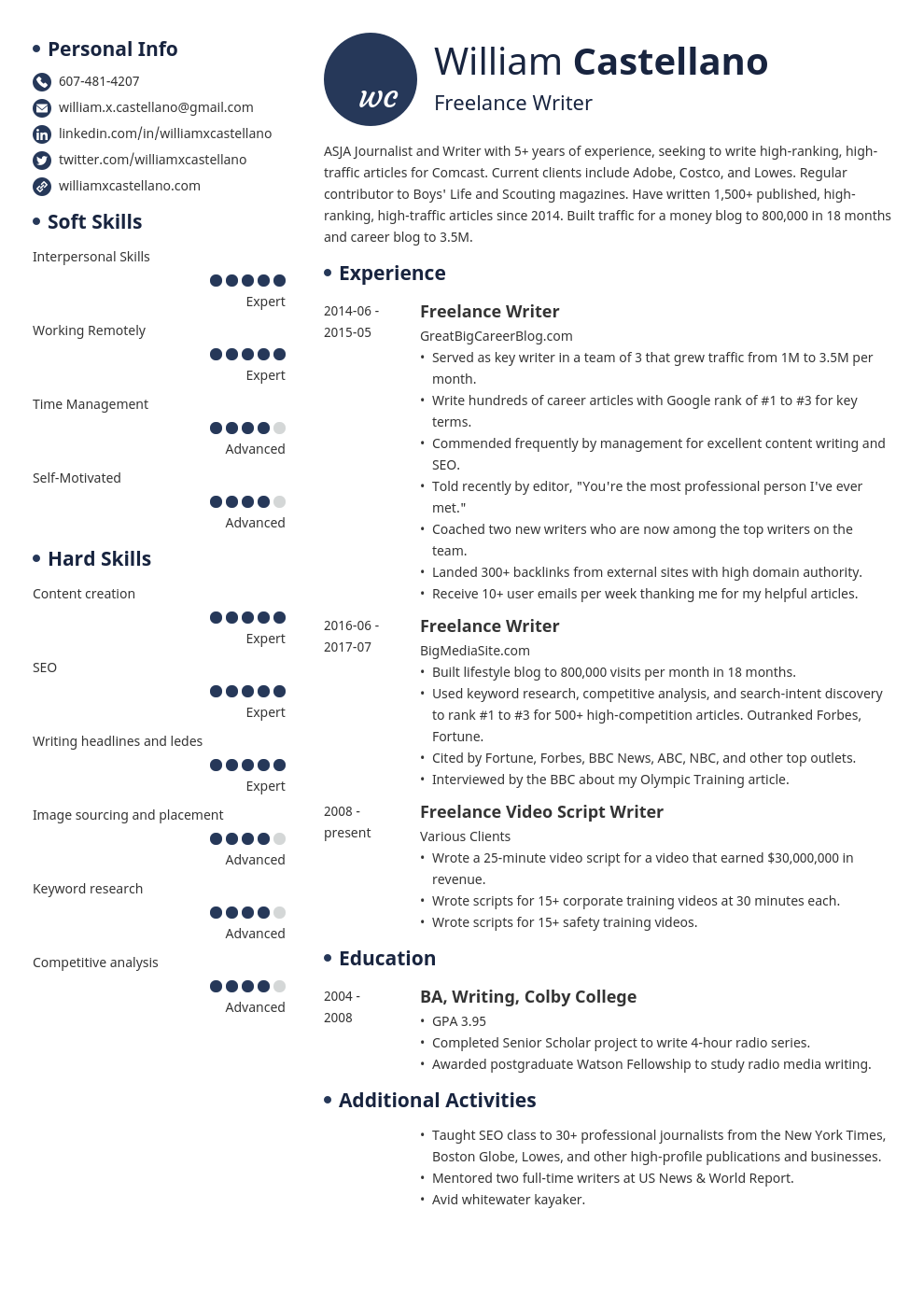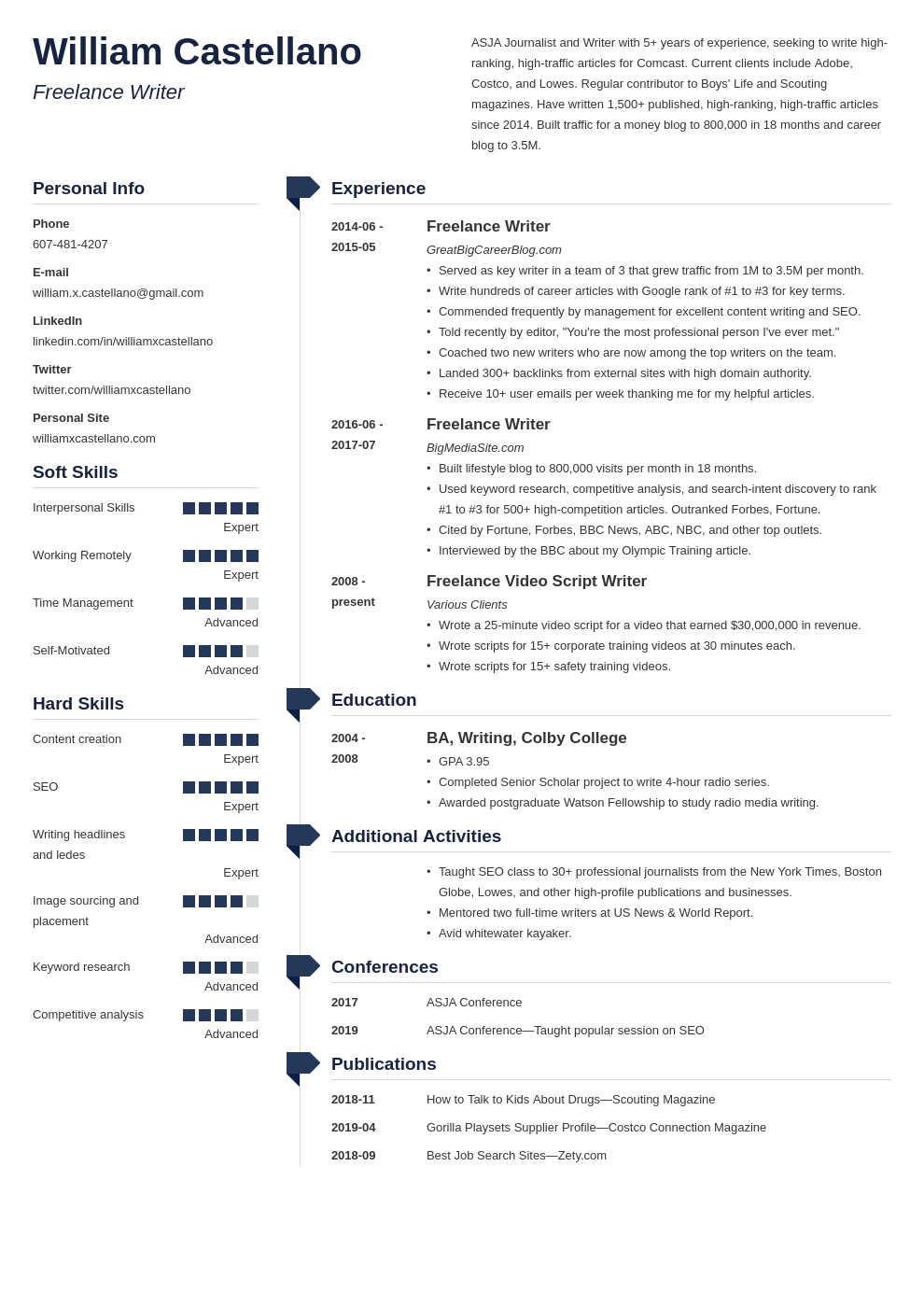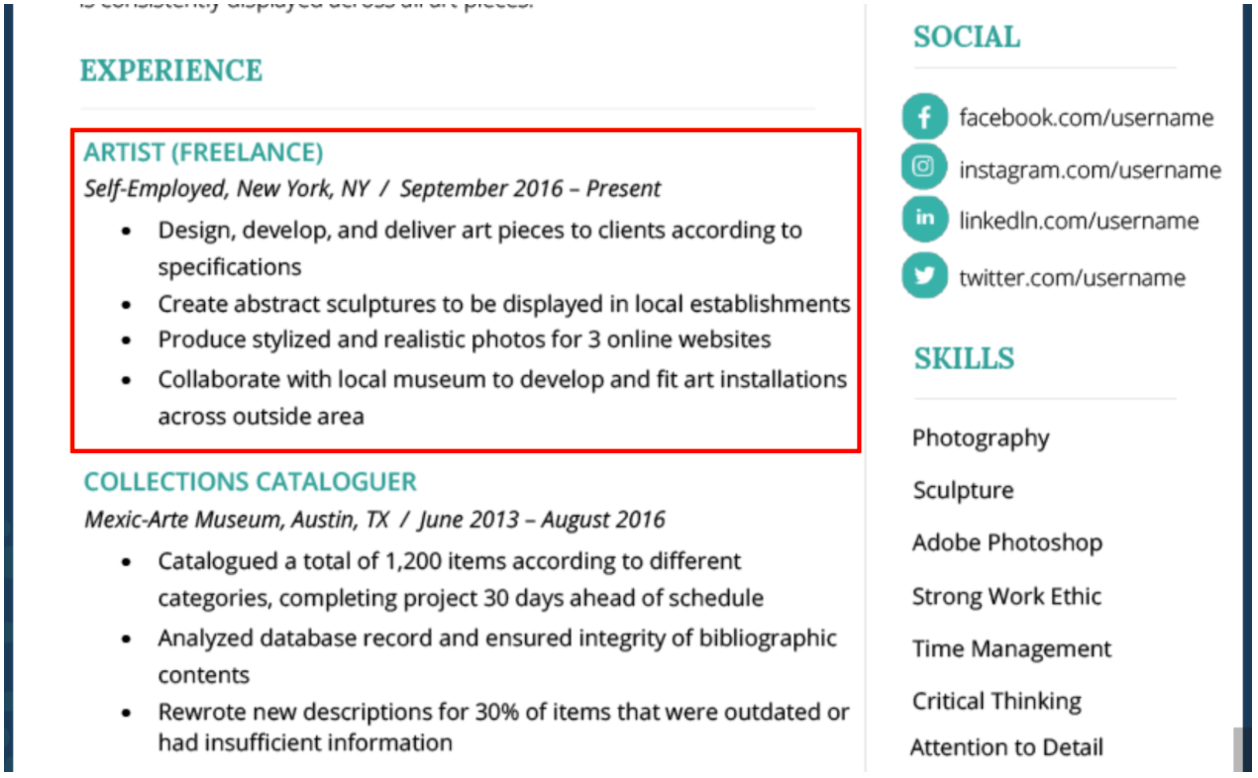Freelance work is becoming more common in today’s job market. Many employers value the diverse skills and experiences that freelancers bring. Including freelance work on your resume can show potential employers that you are adaptable, self-motivated, and have a range of skills. It also highlights your ability to manage projects and work independently.
When you list freelance work, you demonstrate that you have real-world experience, which can set you apart from other candidates. Many freelancers also develop a strong network of clients and contacts, which can be beneficial for future job opportunities.
Here are a few reasons why freelance work is important for your resume:
- Showcases Skills: Freelance work allows you to develop and showcase a variety of skills that can be relevant to many positions.
- Proves Initiative: Taking the step to work independently shows that you are proactive and willing to take charge of your career.
- Diversifies Experience: Freelancing can expose you to different industries and roles, enhancing your overall experience.
Identifying Relevant Freelance Experience

Not all freelance work may be relevant to every job you apply for. It's crucial to identify the experiences that align with the job description and demonstrate your capabilities effectively. Start by reviewing your freelance projects and selecting those that showcase skills and experiences pertinent to the roles you're targeting.
Consider the following steps:
- Review Job Descriptions: Look closely at the requirements and desired skills listed in job descriptions that interest you.
- Match Skills: Identify which of your freelance projects demonstrate those skills. Focus on projects that best showcase your abilities relevant to the position.
- Consider Impact: Choose projects that had a significant impact, such as helping a client increase sales or improve their online presence.
Also Read This: How to Set Up Fiverr Direct Deposit
Choosing the Right Format for Your Resume

The format of your resume can significantly impact how your freelance work is perceived. You want to choose a format that highlights your skills and experiences effectively. Here are a few common formats you might consider:
- Chronological Resume: This format lists your work experience in reverse chronological order, highlighting your most recent positions first. This is ideal if you have a strong freelance history that aligns with the job.
- Functional Resume: This format emphasizes skills over job titles and is great for showcasing your freelance skills without focusing on a timeline. It's suitable if you have gaps in your employment history.
- Combination Resume: This format blends the chronological and functional formats. It highlights relevant skills while providing a timeline of your work history. This is a good choice if you have both relevant skills and freelance experiences.
Ultimately, the best format will depend on your specific experiences and the job you are applying for. Tailor your resume to fit the needs of the employer while clearly showcasing your freelance work.
Also Read This: How Do You Pay for Fiverr Services?
How to Describe Freelance Projects Effectively

Describing your freelance projects in a compelling way is key to grabbing the attention of potential employers. You want to ensure that your descriptions are clear, concise, and focused on the results you achieved. Start by outlining each project with essential details, but don’t forget to highlight what makes your contribution unique.
Here are some tips for crafting effective descriptions:
- Use Action Verbs: Begin each description with strong action verbs like "developed," "designed," or "implemented" to convey your role clearly.
- Be Specific: Include specific details about what you did, such as tools you used or methodologies you applied. For example, “I created a social media strategy using Hootsuite that increased engagement by 40%.”
- Quantify Your Achievements: Whenever possible, include numbers to showcase your impact. For instance, “Managed a budget of $5,000 for a marketing campaign that generated $20,000 in sales.”
- Focus on the Outcome: Highlight the benefits your work brought to the client. This could be improved efficiency, increased sales, or enhanced brand visibility.
By using these strategies, you can paint a vivid picture of your freelance projects, demonstrating your skills and contributions effectively.
Also Read This: Suggested Rates for Freelance Animation Services
Highlighting Skills Gained Through Freelance Work

Freelancing often involves wearing many hats and taking on diverse responsibilities. This experience allows you to develop a variety of skills that can be very appealing to employers. When highlighting these skills on your resume, it’s essential to connect them to your freelance experiences.
Consider these steps to effectively showcase your skills:
- Identify Transferable Skills: Look for skills that are applicable to the jobs you are applying for, such as project management, communication, or technical skills.
- Group Similar Skills: Create categories for your skills. For example, you might group them into sections like “Technical Skills,” “Soft Skills,” and “Management Skills.”
- Provide Context: Whenever you mention a skill, include a brief example of how you applied it in your freelance work. For instance, “Developed strong communication skills while working with clients to gather project requirements.”
By clearly articulating the skills you’ve gained through freelancing, you present yourself as a well-rounded candidate capable of contributing to various aspects of a role.
Also Read This: How to Become a Fiverr Seller
Incorporating Client Testimonials and Feedback
Client testimonials and feedback can add credibility to your freelance experience. They provide social proof of your abilities and can help potential employers trust your skills and work ethic. Including these elements in your resume or portfolio can make a significant impact.
Here are some tips for effectively incorporating testimonials:
- Gather Feedback: After completing a project, ask your clients for feedback. You can use a simple email template to request their thoughts on your work.
- Choose Relevant Testimonials: Select testimonials that highlight your skills and experiences relevant to the job you are applying for.
- Include Quotations: Add direct quotes from clients in your resume or portfolio. For example, “Jane was instrumental in increasing our website traffic by 50% in just three months.”
- Display on a Dedicated Page: If you have a portfolio website, consider creating a dedicated page for testimonials. This can enhance your credibility and provide potential employers with easy access to client feedback.
By incorporating client testimonials into your resume or portfolio, you provide potential employers with additional insight into your abilities and the value you bring to the table.
Also Read This: How Much to Charge for Freelance Digital Marketing
Common Mistakes to Avoid When Listing Freelance Work
Listing freelance work on your resume can be tricky, and it’s easy to make mistakes that could hurt your chances of landing a job. Avoiding these common pitfalls will help you present your freelance experience in the best light possible. Let’s dive into some of the most common mistakes and how to steer clear of them.
- Being Vague: Avoid vague descriptions of your projects. Instead of saying, “Worked on various projects,” specify what you did. For example, “Designed marketing materials for three major campaigns.”
- Overloading Your Resume: Including every freelance gig you’ve ever done can overwhelm your resume. Focus on the most relevant projects that showcase your skills for the job you're applying for.
- Neglecting to Highlight Achievements: Don’t just list tasks; emphasize what you achieved. Instead of “Managed social media accounts,” say “Increased follower count by 25% within three months.”
- Ignoring Formatting: A cluttered or inconsistent format can detract from your professionalism. Make sure your resume is clean, easy to read, and uses consistent formatting throughout.
- Not Tailoring Your Resume: Each job application may require a different emphasis. Tailor your resume to highlight the freelance experiences most relevant to the specific job description.
Avoiding these mistakes can help you present your freelance work more effectively, increasing your chances of landing your next role.
Also Read This: How to Block a Buyer on Fiverr
Frequently Asked Questions
Many people have questions about including freelance work on their resumes. Here are some common inquiries and helpful answers to guide you in this process.
Can I list freelance work without formal job titles?
Yes, you can. Instead of focusing on titles, describe your role clearly and highlight the projects you completed. For example, “Freelance Graphic Designer” or “Independent Marketing Consultant” are acceptable descriptions.
How should I format freelance work on my resume?
Include freelance work in the same section as your other work experience. You can create a separate section titled “Freelance Experience” or “Independent Projects” if you have several relevant gigs. Use bullet points for clarity.
Is it okay to include unpaid freelance work?
Absolutely. If the experience is relevant and demonstrates your skills, include it. Be honest about the nature of the work, and focus on what you accomplished.
How can I quantify my freelance work experience?
Use numbers and statistics to quantify your achievements, such as revenue generated, number of projects completed, or growth in engagement metrics. This adds credibility and impact to your experience.
Conclusion and Final Thoughts
Including freelance work on your resume can significantly enhance your appeal to potential employers. It shows initiative, a range of skills, and the ability to adapt to different environments. By effectively describing your projects, highlighting relevant skills, and incorporating client feedback, you can create a powerful resume that stands out.
Remember to avoid common mistakes that can weaken your presentation, and take the time to tailor your resume for each application. With the right approach, your freelance work can become a strong asset in your job search. Good luck!




